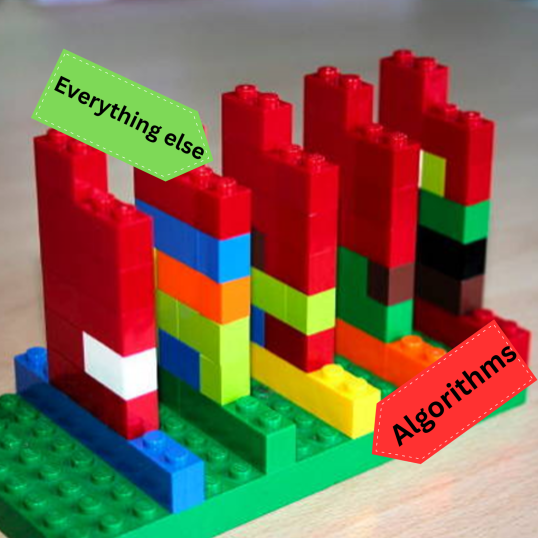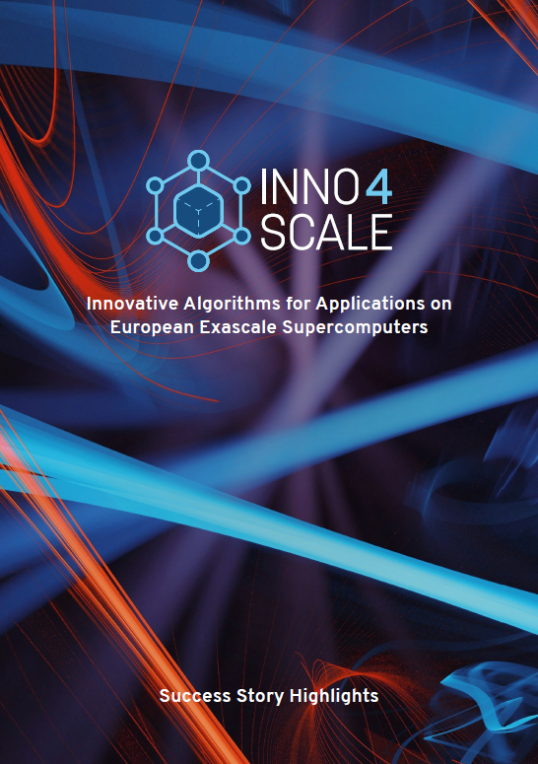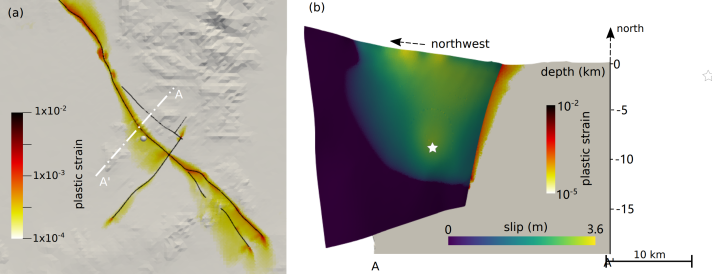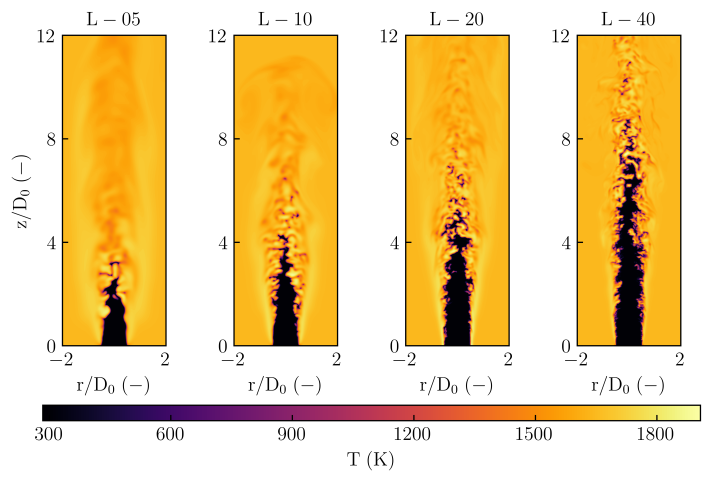Inno4scale is a EuroHPC JU funded project focused on developing novel algorithms for use with exascale and post-exascale European supercomputers.
In July 2023, Inno4scale was awarded a 5 million Euro cascading grant, providing the means to support a range of solution-oriented projects. In less than 2 years they supported 22 innovation studies that will impact key research areas such as climate science, aeronautics, renewable energy, mechanical engineering, machine learning, and many more scientific and industrial sectors.
Each success helps advance European science and research because algorithms are like that base plate in LEGO. They are the foundation – and everything else is built on top!
Algorithms and Innovation
Most people have heard of algorithms and know social media depends on them to send us a constant stream of cute cat videos and funny memes. But beyond that, they may be a little fuzzy about what algorithms actually are and how they work.
Algorithms make up one of the fundamental building blocks of computing. They are important in traditional simulations as well as in artificial intelligence including machine learning models. An algorithm can be understood as a specific set of steps for solving mathematical calculations or completing problem-solving operations.
An algorithm is similar to an instruction manual for assembling a piece of IKEA furniture. When you bring your bookshelf unit home and open the box, a sheet with numbered steps and diagrams shows you exactly which screw goes where, which piece connects to what, and the order in which to put things together. These instructions work the same way every time, whether you are a furniture assembly expert or a complete beginner, following the steps precisely will always lead to the same result. These steps do not require creativity or interpretation; just careful execution of each clearly defined instruction.
Algorithms work in a similar way by breaking down complex tasks into a sequence of simple calculations. However, developing and improving algorithms is a lot more complex than assembling flat pack furniture!
Algorithms are designed to produce the best possible computational results while optimising the use of computational resources. Because computing technologies evolve rapidly, constant innovation is key. Improvements to algorithms as foundational elements of computing can have a significant impact on all types of applications that are running on a computer. These improvements can also help advance research in many scientific fields, such as weather and climate change prediction or the discovery of new strategies for cancer treatment. And that is why Inno4scale’s work is so important.
The project funded the development of novel algorithms that anticipate future needs of applications for exascale or post-exascale supercomputers. EuroHPC JU is working with its members to deploy and maintain a state-of-the-art and sovereign supercomputing, AI and quantum computing infrastructure across Europe. To take full advantage of this supercomputing capacity we cannot just rely on existing codes, as these machines can manage much more computationally intensive simulations and significantly larger datasets. Projects like Inno4scale are essential because they support European researchers in reinventing, redesigning and reimplementing algorithms, which in turn ensures that scientists can utilise the available cutting-edge compute power effectively.
Innovation Studies
Inno4scale selected 22 studies working on bold ideas towards proof-of-concept implementations with the potential to reach new algorithmic heights in HPC. Running from February 2024 until the end of March 2025, these studies represent the cutting-edge of European research on innovative algorithms and computational methodologies for the next-generation of exascale and extreme-scale computing systems. In funding this project, EuroHPC JU recognises the urgency of this research to strengthen the overall European HPC ecosystem.
Details of all the work carried out under this project can be found on their website. An Inno4Scale Success Stories Highlights Booklet is also available.
We highlight here two Inno4Scale projects that exemplify how novel computational approaches can address scientific challenges of high societal significance.
ScalaMIDA worked with the LUMI supercomputer aiming to improve the prediction of earthquakes before they occur. While Ex3S was awarded node hours on Leonardo for a project that enables, for the first time, the study of CO₂-free hydrogen combustion under gas-turbine-relevant high-pressure conditions.
ScalaMIDA
Because seismic faults deep inside the earth are impossible to observe directly, predicting earthquakes before they happen is only possible using simulations running on large supercomputers. In the Inno4scale innovation study ScalaMIDA, scientists improved computational methods for estimating uncertainty in models of seismic activity.
By “prefetching” likely simulation runs and including them earlier in their algorithm’s workflow, the researchers made it possible to run simulations of seismic wave phenomena up to five times faster using large computers. They also found clever ways to improve an algorithm to use CPUs and GPUs more efficiently, replacing some computationally demanding simulation steps with simpler, data-driven models. Their results will make it possible to study earthquakes at lower cost and with greater accuracy, leading to better forecasts and risk management. The same techniques could also accelerate simulation in other fields that use similar statistical approaches to big data, such as climate science or biomedical research.
Ex3S
Reducing reliance on carbon-based fossil fuels will mean developing new kinds of engines powered by climate-friendlier energy sources. Doing so, however, will require large-scale simulations to gain a better understanding of how alternative fuel sources burn under gas turbine relevant conditions. In the Inno4scale innovation study, Ex3S, the research team focused on hydrogen, improving software called NekCRF to simulate hydrogen flames more efficiently and in greater detail. Using one of Europe’s fastest supercomputers, the team optimised the code to overcome bottlenecks in memory usage and performance, and to improve its performance on GPUs. Scaling and production simulations were conducted on up to 200 nodes of Leonardo under the ExtremeScale access project “Extreme-scale Hydrogen Combustion (ExHC)”. Additionally, full-system scaling was achieved on JUWELS Booster, securing early-access time on Europe’s first exascale system, JUPITER, through the JUREAP program—an opportunity awarded to only two other fluid dynamics teams. The team’s simulations also produced a hydrogen combustion database with an unprecedented level of detail covering a vast range of technical-relevant conditions, i.e., high pressure and high temperature. This work gives scientists and engineers powerful tools for benchmarking future models of hydrogen combustion, supporting the design of next-generation, low-emission energy systems, helping Europe move closer to a sustainable, carbon-free future.
Details
- Publication date
- 20 November 2025
- Author
- European High-Performance Computing Joint Undertaking



